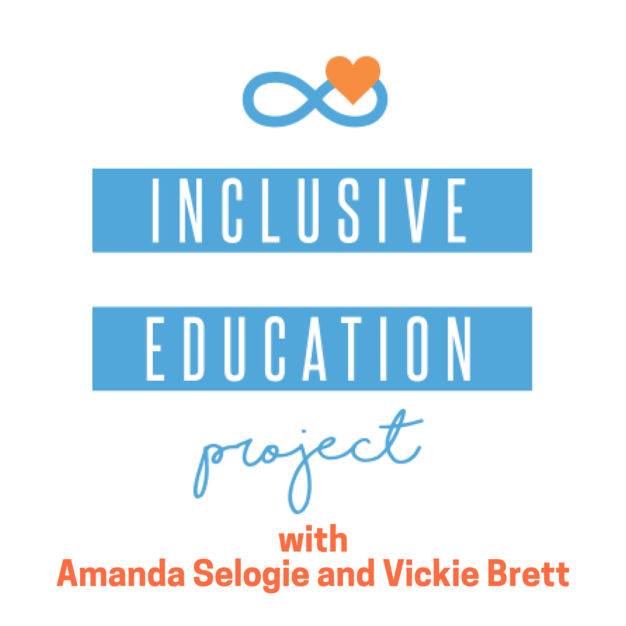
Inclusive Education Project Podcast
Amanda Selogie and Vickie Brett: Special Education and Civil Rights Attorne
Disability rights is the next frontier in civil rights. We believe education is the key to building an inclusive society and ensuring that all students are given an equal opportunity.
- 25 minutes 23 secondsLove Is a Classroom with Andrew Goff
It’s a very busy time of year for everyone involved in IEP meetings, for sure! In today’s episode, we are discussing IEP meetings and the roles of compassionate educators who want to look beyond strict compliance to genuinely meet the needs of students with disabilities and special needs. Join us for the conversation!
Andrew Goff taught early childhood special education in five different least restrictive environments for 12 years. He took this unique insight into his doctoral program, from which he graduated in 2017. As he moved into the community college system in Colorado, he is currently the lead instructor at Colorado Northwestern Community College, not far from Steamboat Springs. Based on his life as an educator, he has written the memoir, Love Is a Classroom and is a fierce advocate for “inclusion–early, everywhere, and always.”
Show Highlights:
- Andrew’s unique perspective on IEP meetings after teaching across early grade levels and into the college system
- The key to effective IEP services is to start early and not wait until the teenage years.
- Andrew’s book—and the emotions it stirred up in him
- The need for more training for educators in compassion and creativity
- The value of teaching assistants in creating a compassionate community in the classroom
- A focus on compliance puts special education in a restrictive box.
- What Andrew wishes teachers and parents knew before going into IEP meetings
Links/Resources:
Connect with Andrew Goff and his work: Website, Love Is a Classroom book, Love Is a Classroom podcast, podcast on Spotify, Instagram, Facebook, and YouTube
Contact us on social media or through our website for more information on the IEP Learning Center: www.inclusiveeducationproject.org
Thank you for listening!
Don’t forget to SUBSCRIBE to the show to receive every new episode delivered straight to your podcast player every Tuesday.
If you enjoyed this episode and believe in our message, then please help us get the word out about this podcast. Rate and Review this show on Apple Podcasts, Stitcher Radio, or Google Play. It helps other listeners find this show.
Be sure to connect with us and reach out with any questions/concerns:
Instagram–We are doing videos on Instagram, so connect with us here and send us your questions!
Email us: [email protected]
30 April 2024, 7:00 am - 25 minutes 11 secondsA Holistic View of Language and Cultural Context with Dr. Alexander Tan
Today’s episode is Part 2 to our recent solo episode about English language learners. We are focusing on the bigger picture of language as only one part of a child’s entire cultural context affecting performance on all educational and neuropsychological evaluations. Join us to learn more from today’s guest!
Dr. Alexander Tan is a board-certified clinical neuropsychologist and supervisor at Children’s Hospital of Orange County (CHOC). His expertise is in the assessment of neurological and neurodevelopmental disorders in children and adolescents. He is an internationally recognized expert and frequent speaker about topics such as autism, ADHD, learning disabilities, and mental health.
Show Highlights:
- Dr. Tan’s background and how he came to the work he does today in private practice and at CHOC
- Understanding language, cultural context, neurodiversity, and why there are limitations and problems with inappropriate assessment methods
- Bilingualism—a multifaceted construct that always requires “digging deeper”
- Dr. Tan’s experience with parents’ frustrations at evaluations that don’t show a fair and accurate representation of their child
- A neuropsychological evaluation that is culturally and linguistically responsive can help avoid major risks.
- ALL aspects of a child’s culture must be considered in evaluations, including language, nonverbal communication, values, economics, etc.
Links/Resources:
Connect with Dr. Alexander Tan: Website
Contact us on social media or through our website for more information on the IEP Learning Center: www.inclusiveeducationproject.org
Thank you for listening!
Don’t forget to SUBSCRIBE to the show to receive every new episode delivered straight to your podcast player every Tuesday.
If you enjoyed this episode and believe in our message, then please help us get the word out about this podcast. Rate and Review this show on Apple Podcasts, Stitcher Radio, or Google Play. It helps other listeners find this show.
Be sure to connect with us and reach out with any questions/concerns:
Instagram–We are doing videos on Instagram, so connect with us here and send us your questions!
Email us: [email protected]
23 April 2024, 7:00 am - 20 minutes 38 secondsThe Power of a “Stay-Put” Motion
Are you paying attention to the calendar? As we find ourselves in the last few weeks of the school year, this is your friendly reminder to act fast for the annual transition IEP meetings that should be happening. In today’s episode, we are discussing the power of “stay put” as it applies to keeping things the same in IEP accommodations and services while being in disagreement with a proposed change. Join us for a closer look!
Show Highlights:
- “Stay put” is not just for due process cases but is one of the most important parental legal rights.
- The federal law is consistent but state-to-state nuances depend on consent status.
- Understanding how stay-put reverts to the last consented-to IEP
- Real-life examples of stay-put scenarios
- Our recommendations for a partial consent/partial stay-put
- Understanding the word placement as it’s used in IEP language
- Potential exceptions to the stay-put rule
Links/Resources:
Contact us on social media or through our website for more information on the IEP Learning Center: www.inclusiveeducationproject.org
Thank you for listening!
Don’t forget to SUBSCRIBE to the show to receive every new episode delivered straight to your podcast player every Tuesday.
If you enjoyed this episode and believe in our message, then please help us get the word out about this podcast. Rate and Review this show on Apple Podcasts, Stitcher Radio, or Google Play. It helps other listeners find this show.
Be sure to connect with us and reach out with any questions/concerns:
Instagram We are doing videos on Instagram, so connect with us here and send us your questions!
Email us: [email protected]
16 April 2024, 7:00 am - 18 minutes 55 secondsENCORE: English Language Learners and IEPs
Today's show is a replay of a very popular and informative episode that we hope you'll enjoy.
Today’s topic has popped up recently in some of our cases, and it’s an important one to cover because it is under-supported and often overlooked in the IEP world. We are discussing the ELL designation, which stands for “English Language Learner.” Join us to learn when a child should be designated as an ELL, how things should progress from there, and what the school district’s obligations are when that designation is given.
Show Highlights:
- A student’s ethnicity can prompt false assumptions that come with an ELL designation (which can mean different things in different cases).
- Understanding the differences in an ELL designation, an ESL designation, and a dual immersion program
- A student’s language proficiency impacts their ability to learn in different environments–and the IEP should reflect this fact.
- A student’s primary language can have unique nuances that are very different from English, which greatly affects testing, evaluations, and assessments.
- Considerations about inherent racial bias in assessments–and why they should be done in a student’s native language
Links/Resources:
Contact us on social media or through our website for more information on the IEP Learning Center: www.inclusiveeducationproject.org
Thank you for listening!
Don’t forget to SUBSCRIBE to the show to receive every new episode delivered straight to your podcast player every Tuesday.
If you enjoyed this episode and believe in our message, then please help us get the word out about this podcast. Rate and Review this show on Apple Podcasts, Stitcher Radio, or Google Play. It helps other listeners find this show.
Be sure to connect with us and reach out with any questions/concerns:
Instagram–We are doing videos on Instagram, so connect with us there and send us your questions!
Email us: [email protected]
9 April 2024, 7:00 am - 40 minutes 31 secondsTackling Brain Health: Amanda and Vickie make a guest appearance on the Neurologics podcast hosted by Karen Odell-Barber
Welcome to a very special episode! Karen Odell-Barber with Neurologics was a recent guest on our show, so we returned the favor by appearing on her podcast, Tackling Brain Health. We are excited to share that episode today. You’ll learn more about our journeys, the origins of our law firm and podcast, and the important work that calls to us on behalf of students and families. Join us!
Show Highlights:
- The varied paths that led Amanda and Vickie to be special education attorneys after meeting in law school
- Special education law: “The wild, wild west”
- Karen’s personal experience in being diagnosed with a profound learning disability
- Amanda and Vickie’s approach in helping families, filing for due process, and working with school teams
- The reality of trying to get needed accommodations for students–and why Vickie and Amanda are doing things differently
- The difference between a special ed attorney and an advocate
- Amanda and Vickie’s message to parents about the services and role of a special ed attorney
- In identifying and securing accommodations, early intervention is the key!
- The problems when teachers don’t understand the law and make assumptions about students
- Examples of students who can benefit from the help of a special ed attorney
Links/Resources:
Check out the Tackling Brain Health podcast with Karen Odell-Barber!
Contact us on social media or through our website for more information on the IEP Learning Center: www.inclusiveeducationproject.org
Thank you for listening!
Don’t forget to SUBSCRIBE to the show to receive every new episode delivered straight to your podcast player every Tuesday.
If you enjoyed this episode and believe in our message, then please help us get the word out about this podcast. Rate and Review this show on Apple Podcasts, Stitcher Radio, or Google Play. It helps other listeners find this show.
Be sure to connect with us and reach out with any questions/concerns:
Instagram–We are doing videos on Instagram, so connect with us there and send us your questions!
Email us: [email protected]
2 April 2024, 4:00 am - 30 minutes 2 secondsSmooth Transitions for Your Child’s Next School Phase
We are in the season of Spring Break and Easter, which means transition IEP meetings should be happening. If you have procrastinated, it’s not too late! If your child is transitioning from preschool to kindergarten, from sixth grade to middle school, from middle school to high school, or even beyond high school into a vocational program, you’ll learn valuable information in today’s episode. Join us!
Show Highlights:
- Be proactive in scheduling transition IEPs and annual/triennial meetings.
- The importance of assessing your student’s current accommodations for proper implementation and effectiveness
- Examples of accommodations
- Specifics in accommodations are necessary so the interpretation of the IEP words “as needed” isn’t left up to the teacher
- The problems with vaguely worded accommodations
- Best practices for meetings that generate specific and solution-oriented IEPs
- Any modification or accommodation that works for your student should be written into the IEP.
Links/Resources:
Contact us on social media or through our website for more information on the IEP Learning Center: www.inclusiveeducationproject.org
Thank you for listening!
Don’t forget to SUBSCRIBE to the show to receive every new episode delivered straight to your podcast player every Tuesday.
If you enjoyed this episode and believe in our message, then please help us get the word out about this podcast. Rate and Review this show on Apple Podcasts, Stitcher Radio, or Google Play. It helps other listeners find this show.
Be sure to connect with us and reach out with any questions/concerns:
Instagram–We are doing videos on Instagram, so connect with us there and send us your questions!
Email us: [email protected]
26 March 2024, 4:00 am - 26 minutes 43 secondsAmazing Advances in Brain Optimization Technology with Karen Odell-Barber
We are learning more and more all the time about how our brains function and what it means to be neurodiverse. In this episode, we explore cutting-edge technologies in the field of brain optimization, which has huge implications in special education. Join us to learn more!
We are joined by Karen Odell-Barber, the founder and CEO of Neurologics, a technology company that does brain mapping and optimization of the brain producing permanent cognitive repair. This optimization leads to an additional 15 functional IQ points for every person who does optimization, regardless of age, along with a wild improvement in memory. As a traumatic brain injury survivor with a severe learning disability, Karen is passionate about brain health and helping people improve their lives.
Show Highlights:
- Neurologic technology was developed at NASA’s Jet Propulsion Laboratory and incorporates psychometric testing measures.
- The significance of adding functional IQ points through brain optimization
- Why brain function is the foundation of everything we do
- Karen’s work with addicted people
- A child can utilize a higher-functioning brain and still have learning differences.
- Karen’s message: “Brain optimization can have a huge impact on learning and life.”
- Karen’s examples of how even a 40-point jump in functional IQ points is possible with brain optimization!
- How “pruning” occurs in the brain at ages 6-7, 14, and 19-25—and what that means
- The hurdle of getting schools to use science and technology in special education
Links/Resources:
Connect with Karen Odell-Barber and Neurologics: Website, YouTube, and Tackling Brain Health podcast
Contact us on social media or through our website for more information on the IEP Learning Center: www.inclusiveeducationproject.org
Thank you for listening!
Don’t forget to SUBSCRIBE to the show to receive every new episode delivered straight to your podcast player every Tuesday.
If you enjoyed this episode and believe in our message, then please help us get the word out about this podcast. Rate and Review this show on Apple Podcasts, Stitcher Radio, or Google Play. It helps other listeners find this show.
Be sure to connect with us and reach out with any questions/concerns:
Instagram–We are doing videos on Instagram, so connect with us there and send us your questions!
Email us: [email protected]
19 March 2024, 4:00 am - 18 minutes 55 secondsEnglish Language Learners and IEPs
Today’s topic has popped up recently in some of our cases, and it’s an important one to cover because it is under-supported and often overlooked in the IEP world. We are discussing the ELL designation, which stands for “English Language Learner.” Join us to learn when a child should be designated as an ELL, how things should progress from there, and what the school district’s obligations are when that designation is given.
Show Highlights:
- A student’s ethnicity can prompt false assumptions that come with an ELL designation (which can mean different things in different cases).
- Understanding the differences in an ELL designation, an ESL designation, and a dual immersion program
- A student’s language proficiency impacts their ability to learn in different environments–and the IEP should reflect this fact.
- A student’s primary language can have unique nuances that are very different from English, which greatly affects testing, evaluations, and assessments.
- Considerations about inherent racial bias in assessments–and why they should be done in a student’s native language
Links/Resources:
Contact us on social media or through our website for more information on the IEP Learning Center: www.inclusiveeducationproject.org
Thank you for listening!
Don’t forget to SUBSCRIBE to the show to receive every new episode delivered straight to your podcast player every Tuesday.
If you enjoyed this episode and believe in our message, then please help us get the word out about this podcast. Rate and Review this show on Apple Podcasts, Stitcher Radio, or Google Play. It helps other listeners find this show.
Be sure to connect with us and reach out with any questions/concerns:
Instagram–We are doing videos on Instagram, so connect with us there and send us your questions!
Email us: [email protected]
12 March 2024, 4:00 am - 26 minutes 42 secondsPreparing Your Student for College and Self-Advocacy with Dan Jordan
On our very first episode of 2024, we were joined by Dan Jordan to discuss the transition to college and accommodations for students with IEPs and 504 Plans. Dan joins us for Part 2 to that conversation to educate us on the student’s responsibility. We are taking a close look at the actual steps students need to take as they transition past high school and what we should realistically expect college freshmen to do on their own. Join us to learn more!
Dan Jordan worked for ten years as a therapist on a college campus, providing information about accommodations for students with disabilities, and he now works in a college counseling center. Because his son has numerous learning disabilities, Dan understands the world of special education and learning accommodations both from a parental and professional perspective.
Show Highlights:
- Why a student has to decide if they are going to ask for accommodations in college or not (Dan’s advice: Ask for them anyway!)
- How accommodations can provide a sense of familiarity in the transition to an unfamiliar environment
- How students have to account for how they use unstructured time in college and have support in place
- Dan’s advice about choosing a college and considering academic coaching and services
- How students have to ask for accommodations and ask the right questions about testing, scheduling, policies, etc.
- Why students need practice at an early age in self-advocacy and speaking up for themselves
Links/Resources:
Connect with Dan Jordan: Website (Check out the courses and other resources!), Facebook, and Instagram
Contact us on social media or through our website for more information on the IEP Learning Center: www.inclusiveeducationproject.org
Thank you for listening!
Don’t forget to SUBSCRIBE to the show to receive every new episode delivered straight to your podcast player every Tuesday.
If you enjoyed this episode and believe in our message, then please help us get the word out about this podcast. Rate and Review this show on Apple Podcasts, Stitcher Radio, or Google Play. It helps other listeners find this show.
Be sure to connect with us and reach out with any questions/concerns:
Instagram–We are doing videos on Instagram, so connect with us there and send us your questions!
Email us: [email protected]
5 March 2024, 7:00 am - 22 minutes 29 secondsThe Return of Cursive Writing with Dr. Christina Bretz
Today’s topic is interesting and timely as California joins 22 other states in requiring public schools to teach cursive writing. This has been a hotly debated issue, and today’s guest has a lot to share about the benefits of cursive writing.
Dr. Christina Bretz is an Occupational Therapist from Lexington, KY, who is passionate about how handwriting skills help students across all academic areas. She is currently the Senior Internal Learning Manager at Learning Without Tears, where she has worked for 25 years.
Show Highlights:
- How cursive faded from the curriculum when states adopted Common Core standards
- The benefits for students who begin cursive writing instruction in 3rd grade
- How Dr. Christina sees students gain confidence with handwriting skills
- How cursive writing provides practical help for students with ADHD, dyslexia, and dysgraphia
- How cursive writing helps provide multi-sensory learning styles
- Why there is pushback about teaching cursive writing
- How cursive writing can be integrated into all academic subject areas and implemented with special education students
Links/Resources:
Connect with Dr. Christina Bretz and Learning Without Tears: Website
Contact us on social media or through our website for more information on the IEP Learning Center: www.inclusiveeducationproject.org
Thank you for listening!
Don’t forget to SUBSCRIBE to the show to receive every new episode delivered straight to your podcast player every Tuesday.
If you enjoyed this episode and believe in our message, then please help us get the word out about this podcast. Rate and Review this show on Apple Podcasts, Stitcher Radio, or Google Play. It helps other listeners find this show.
Be sure to connect with us and reach out with any questions/concerns:
Instagram We are doing videos on Instagram, so connect with us there and send us your questions!
Email us: [email protected]
27 February 2024, 4:00 am - 12 minutes 33 secondsCalifornia's Historic $2 Billion Settlement: Addressing COVID Learning Loss
In this episode, we delve into the details of a landmark settlement in California, where a $2 billion fund has been allocated to address the learning loss experienced by students during the COVID-19 pandemic. This historic agreement, known as the Kala J. settlement, aims not only to recoup the losses suffered by students but also to narrow the opportunity gaps that existed even before the pandemic, particularly for Black and Latino communities. Led by the Public Council and other organizations, this settlement is poised to bring about significant changes in the education landscape, focusing on evidence-based programs and new legislation.
However, amidst the optimism, there are concerns about how this settlement will be implemented and whether it will truly benefit all students, including those with disabilities who often face additional challenges. As attorneys who specialize in education law, we examine the implications of this settlement and the potential hurdles that lie ahead. Join us as we explore the intricacies of this groundbreaking agreement and its impact on the future of education in California.
Show Highlights:
- Introduction to the historic settlement in California, focusing on learning loss due to the COVID-19 pandemic
- The settlement, not a special education case, aims to address learning loss across demographics.
- Public Council and other organizations led the lawsuit, emphasizing the need to close opportunity gaps for black and brown students
- The $2 billion settlement will not directly go to families but will fund evidence-based programs and propose new legislation.
- Concerns are raised about public perception, potential lack of consideration for kids having IEPs, and the need for effective implementation of programs
- The settlement earmarks existing funds for specific use, requiring legislative action and potential challenges in enforcement and implementation.
Links/Resources:
Contact us on social media or through our website for more information on the IEP Learning Center: www.inclusiveeducationproject.org
Thank you for listening!
Don’t forget to SUBSCRIBE to the show to receive every new episode delivered straight to your podcast player every Tuesday.
If you enjoyed this episode and believe in our message, then please help us get the word out about this podcast. Rate and Review this show on Apple Podcasts, Stitcher Radio, or Google Play. It helps other listeners find this show.
Be sure to connect with us and reach out with any questions/concerns:
Instagram–We are doing videos on Instagram, so connect with us there and send us your questions!
Email us: [email protected]
20 February 2024, 7:00 am - More Episodes? Get the App
Your feedback is valuable to us. Should you encounter any bugs, glitches, lack of functionality or other problems, please email us on [email protected] or join Moon.FM Telegram Group where you can talk directly to the dev team who are happy to answer any queries.
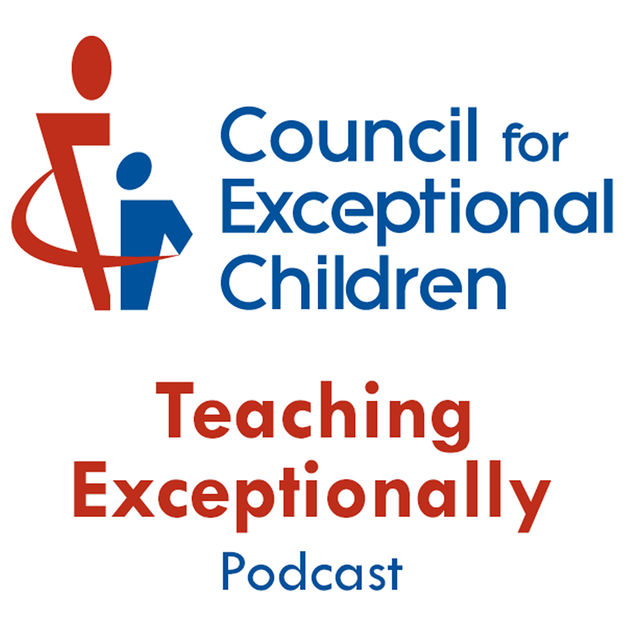 Teaching Exceptionally Podcasts
Teaching Exceptionally Podcasts
 Views From Both Sides of the Table: Special Needs| Parenting| Education
Views From Both Sides of the Table: Special Needs| Parenting| Education
 Special Education With Mr. Durham
Special Education With Mr. Durham
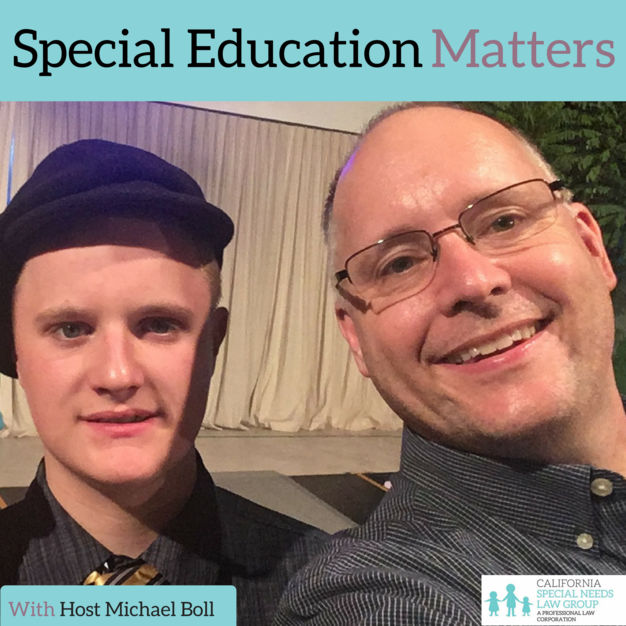 Special Education Matters
Special Education Matters
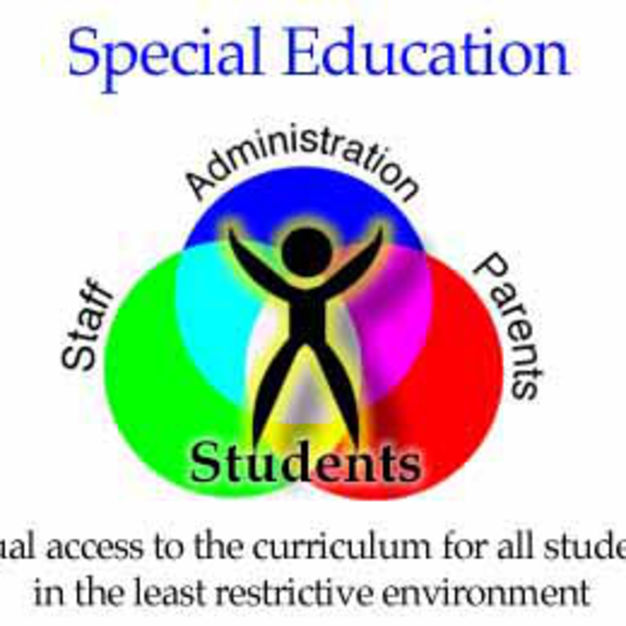 Special Ed Podcast
Special Ed Podcast
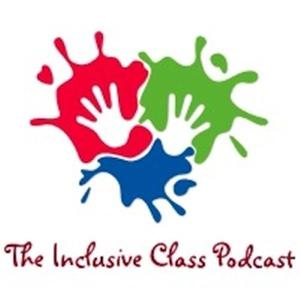 The Inclusive Class Podcast
The Inclusive Class Podcast